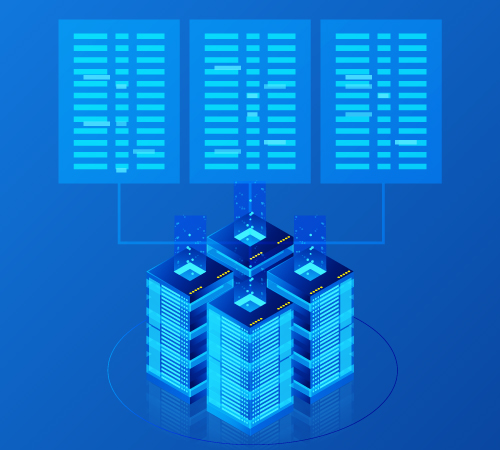Data Warehousing or Data Virtualization? This is one of the most important questions enterprises ask when it comes to storing data effectively. With the advent of the latest Data Design, Architecture, and Engineering technologies, an organization can use the tools to gain insights into their business operations from the company’s data and develop new strategies that help them generate more revenue and market share. Organizations have data stored in diverse sources and locations, so they require a reliable architecture and engineering tool to export, copy and transform data into one system.
The two principal techniques that focus on cleaning, integrating, and consolidating data available in a company are data warehousing and data virtualization, which can help drive better business decisions using up-to-date information. This comprehensive data warehousing vs. virtualization guide will reveal the best technology to store the company’s data and why business owners should choose it.
Why Is Effective Data Storage Important For An Organization?
Every business – small, mid-size, or large enterprise – gathers data to understand its customers better and improve the business decisions that directly impact the company’s bottom line.
ALSO READ: 15 Ways in Which Machine Learning Expands Your Business
In his article, Bernard Marr, a thought leader in the business and technology field, said: “While the average small business has less self-generated data than big players like Google or Facebook, this doesn’t mean big data is off limits. In many ways, big data is more suited to small businesses because they’re generally more agile and able to act more quickly on data-driven insights.”
Bernard Marr’s statement proves that stored data can benefit companies of all sizes, especially SMBs and growing enterprises, and help them hedge against their competitors.
Some of the critical benefits of adequate data storage and utilization of the latest data warehousing services in an organization include:
- Helps make better decisions, increase customer retention, improve customer service, and find new customers
- Tracks the past-month performance to build marketing campaigns that drive sales
- Keeps the sensitive business data safe and secure against cyber attackers and hackers
- Prevents data loss by consolidating data from multiple sources into a single data source
- Helps create fail-proof strategies by identifying the customer interaction with business
Which Is Better – Data Warehousing VS Data Virtualization?
A survey conducted by Deloitte indicates that “data analytics helped 49% of respondents make better business decisions, 16% to take strategic initiatives, and 10% to improve relationships with business partners and their customers.”
 No matter the business size, this study indicates that data storage is vital to outrank the competitors in the market. Both data warehousing and data virtualization are effective ways to store, access, and analyze data; however, the ultimate choice will depend on the needs and preferences of an organization.
No matter the business size, this study indicates that data storage is vital to outrank the competitors in the market. Both data warehousing and data virtualization are effective ways to store, access, and analyze data; however, the ultimate choice will depend on the needs and preferences of an organization.
Data Warehousing
Data warehousing is extracting, electronically storing, and making the data from the operational systems available for analysts and other team experts for ad-hoc queries and reporting. The dimensional models used in the data warehousing architecture help extract meaningful information from the raw data available in an organization and translate it into an easy-to-understand structure to achieve business goals.
Features & Benefits Of Data Warehousing
The data warehousing solutions are subject-oriented and gather data from different sources in a single place to get an in-depth business overview. Data analysts and other business experts can get information about sales data, products, and customer and supplier details to improve the organization’s ongoing operations. Data warehousing is time-variant, integrated, and non-volatile, making it one of the most accurate data storage solutions, which keeps data integrity intact.
Data Virtualization
On the other hand, data virtualization is a tool that involves accessing, managing, and retrieving critical business data without collecting or duplicating the data in a physical repository. It leverages modern technology to help business owners get real-time insights with high speed, low cost, and agility and perform their business operations better than the competition.
The data engineering experts of Inferenz can help you implement data virtualization tools that integrate information from diverse sources into a single system for easy access to data. Inferenz has recently helped a US-based e-commerce company build analytics solutions and implement a Self Service BI tool to increase conversions and access 100% of data in real time. Read our case study here.
ALSO READ: 5 Essential Tips for Corporate Learning
Features & Benefits Of Data Virtualization
The unified virtual layer of data virtualization reduces the complexities of gathering data from different sources by avoiding the need for data replication. Compared to data warehouse cost, data virtualization allows speedy resource deployment at a lower price, as it does not involve installing hardware devices.
Implement The Best Data Storage Tool With Inferenz
As one must have seen, data virtualization and warehousing services are the two best technologies for storing business data and analyzing it to predict future outcomes. However, the choice between the two will depend on business needs and preferences, budget, and business objectives.
If you want to choose the data engineering tools that best serve your company and boost revenue, Inferenz experts can help you simplify the data architecture with their tech-enabled solutions.


